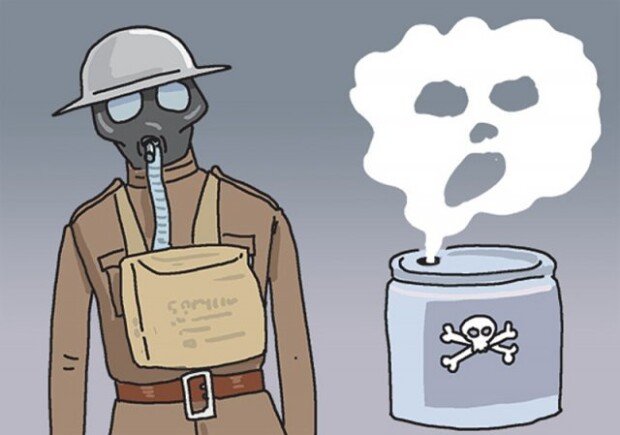Fantasy of the absolute weapon
Fantasy of the absolute weapon
Posted April. 26, 2022 08:20,
Updated April. 26, 2022 08:20

On April 22, 1915, Germany disseminated poison gas to the British and French troops during the Battle of Ypres. While the use of poison gas was prohibited by international treaties, the German military could not resist the temptation as the battle grew fiercer. Infuriated, the opponents unleashed gas too, making the First World War an unprecedented stage of chemical weapons’ experiment.
The German military laid their hands on the forbidden weapon because they believed ending war as quickly as possible at any cost was in the best interest of all the nations and peoples involved. In fact, their logic was nothing new; it was the cause they had always advocated when mobilizing their formidable weapons from machine guns to nuclear missiles.
Then, was the poison gas a gamechanger? The answer was no. When they first sprayed the lethal gases, the German troops successfully decimated thousands of enemies and made them run away. But after committing such atrocity, the Germans only managed to march less than 10 kilometers.
The Allied Forces quickly came up with a solution, producing and supplying masks for their troops. The masks were shoddily made but effective, nonetheless because the efficacy of poison gas was also rudimentary. The chemical tortured both sides, leaving adverse side-effects and disabilities to them for the rest of their lives. That was the effect of the gas. It only made it more brutal, making little difference to the result of the battles.
In fact, it is quite plain to see why poison gas can never be the gamechanger. First, Germany and the Allied Forces were comparable to one another in terms of their scientific and industrial capabilities. One might be superior to the other in some products, but it was never an absolute advantage. Like a function of keys and locks, if one can make the equipment for offense, it can also make the equipment for defense like gas masks. When airplanes were first mobilized as weapons, some harbored the fantasy of looking down the enemies from the sky like the Zeus, the advent of an absolute weapon such as his lightening bolt. But it was not the case. The invention of surface-to-air artilleries and missiles blighted the fantasy. Even more fatal was the advancement of enemy aircraft.
Why obsess with absolute weapons? The truth holds in life, business, and politics. An obsession with an absolute solution invariably invites a counter punch.







